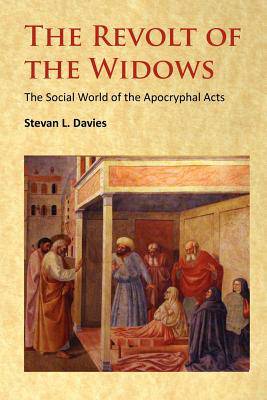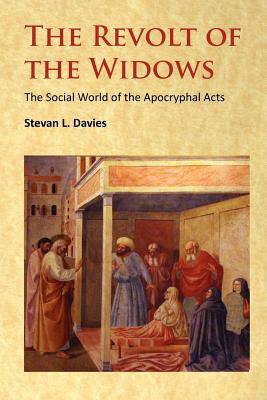
- Retrait gratuit dans votre magasin Club
- 7.000.000 titres dans notre catalogue
- Payer en toute sécurité
- Toujours un magasin près de chez vous
- Retrait gratuit dans votre magasin Club
- 7.000.0000 titres dans notre catalogue
- Payer en toute sécurité
- Toujours un magasin près de chez vous
Description
The Apocryphal Acts of the Apostles were among the most popular extracanonical writings of the second century. The Acts of John, Peter, Paul, Andrew, Thomas and Xanthippe tell stories of the legendary wanderings, preaching and miracles of the apostles. Besides talking beasts, extravagant healings and moral discourses, the Apocryphal Acts reserve an important place for stories about women. Each of the Acts describes a woman who converts to Christianity, leaves her husband for the sake of the church and then lives in sexual abstinence. Davies argues that such women were known as "'Widows', a group which could at times include both wid¬ows and virgins; widows were sexually continent, often dependent upon the church for financial support, often of advanced age, expected to pray constantly, and resolved to remain faithful to Christ. Such a group of women would have had a collective identity, even a semi-clerical status." He shows that these texts featured sexually continent Christian women in their narratives and they they are likely to have been authored by Christian women. By analyzing the social world behind the apocryphal Acts, Davies reveals the way in which Christian women in early centuries sometimes sought to have equal standing with men by rejecting their traditional roles as wives and mothers. In addition to surveying the roles of women in ancient Christianity.Revolt of the Widows emphasizes the magical world view that dominated in ancient times both among Christians and pagans, In an extensive new afterword Davies tackles the canonical Acts of the Apostles and provides convincing evidence that the author-traditionally identified as Luke-was a woman, a "mother of the church." "opens up whole new vistas on the self-understanding of women in the early church." - Carolyn Osiek, Catholic Biblical Quarterly "provocative . . . deserves to be taken seriously as another attempt, in turn, to take seriously those voices which have been muted by an aristocratic scholarly establishment for these many centuries." - Devon Wiens, Journal of Biblical Literature "Davies perceptively notes how the apocryphal Acts represent males as ethically dangerous, liable to temptation, and confused about their faith-the very tendencies most patristic writers ascribed to women." Elizabeth Clark, Church History
Spécifications
Parties prenantes
- Auteur(s) :
- Editeur:
Contenu
- Nombre de pages :
- 168
- Langue:
- Anglais
Caractéristiques
- EAN:
- 9781906834173
- Date de parution :
- 06-06-12
- Format:
- Livre broché
- Format numérique:
- Trade paperback (VS)
- Dimensions :
- 152 mm x 229 mm
- Poids :
- 254 g

Les avis
Nous publions uniquement les avis qui respectent les conditions requises. Consultez nos conditions pour les avis.






